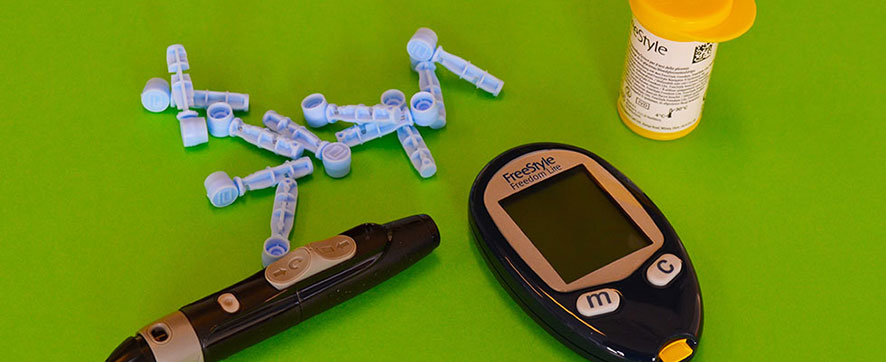Typically, elevations in blood sugar are associated with dietary choices, such as eating too much sugar or too many carbs. But many elements can affect how our bodies regulate blood sugar, including dehydration, heat exposure, and skipping meals. Stress from life circumstances, illness, and lack of sleep, is also a contributing factor when it comes to blood sugar regulation. When the body is stressed, the “stress response” is triggered in your body. This sends a cascade of hormones, including cortisol, to be released. Cortisol can significantly affect our bodies, including our inflammatory response, immune system, metabolism and blood sugar regulation.
High levels of stress can result in the following:
- Elevated cortisol levels, which results in elevated blood
- Inhibition of the release of insulin, which regulates blood sugar
- Changes in our body’s sensitivity to insulin release
- Resistance to insulin
Additionally, when you are experiencing increased levels of stress, you are more likely to eat poorly, skip meals, and sleep badly, all of which can also contribute to blood sugar issues.
Certain risk factors may increase the likelihood that you will have blood sugar issues related to stress, including:
- Having a history of depression
- Experiencing chronic stress related to work
- Experiencing adversity early in life
- Having the propensity to react to stress by making unhealthy food choices, reducing physical activity, and neglecting to take diabetes medication
Stress and the resulting blood sugar changes can have negative effects on a person’s health and wellbeing. If you have diabetes, stress can:
- Make it more challenging for you to continue your daily routines around regulating blood sugar and cause your body to wear down
- Increase your blood pressure and raise your heart rate leading to increased risk of heart disease
- Increase fatigue or depression.
- Make you feel jittery, unhappy, and anxious.
Diagnosing Stress
Stress is part of the human condition and is a pretty common emotional state that many of us find ourselves in from time to time. It is a typical response to difficult life circumstances in our relationships, work, reactions to world events and so forth.
However, stress can be chronic and pathologic, and in this case, it’s possible to be diagnosed with a stress disorder. Two common stress disorders are acute stress disorder and post-traumatic stress disorder (PTSD). Both of these are stress reactions related to traumatic events, but acute stress disorder is diagnosed within about a month of the event, and PTSD is diagnosed when the stress persists past a month.
Stress Treatment
If you are experiencing stress at a level that detrimental to your health and wellbeing, there are several different therapy treatment options that can help you manage your feelings, and react to stress in more healthy and balanced ways. Please seek out help from a counselor and explore some of the therapy types that work best for stress, which include:
- Cognitive behavioral therapy (CBT)
- Interpersonal therapy
- Dialectical behavioral therapy (DBT)
- Psychodynamic therapy
- Eye movement desensitization resolution (EMDR)
Lifestyle Changes to Cope with Stress
- Make it a point to get enough sleep every night
- Stay hydrated
- Eat regular meals that are focused on whole foods rather than processed foods
- Take some time each day to relax your mind
- Try mindfulness and meditation
- Refrain from smoking and drinking alcohol
- Exercise daily
- Take mental health days off when you can
- Learn to say no to obligations when you feel overwhelmed
- Consider joining Support Groups





0 Comments